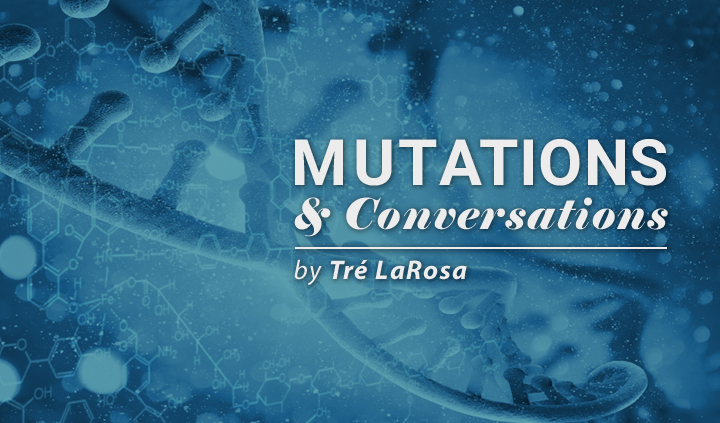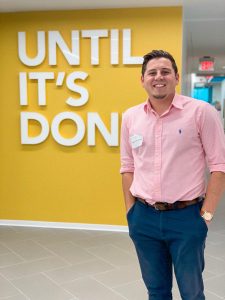This Is What Makes Me Rare
Written by |

It probably won’t come as a shock if I say that growing up with cystic fibrosis is confusing for one’s identity.
Cystic fibrosis requires a huge time commitment and affects most areas of our lives. We can choose to hide it, which probably isn’t the best idea, because then we don’t develop the best skills for verbalizing how it affects us mentally.
Or we can choose to be transparent about our disease. This way, we learn how to hone the language used when talking about it, and maybe we can be opportunistic. However, being transparent is also burdensome because it becomes our responsibility to constantly educate others.
It makes sense that I ended up as a writer and a scientist. Writing and science are similar in that they’re both human endeavors that seek to understand the nature of the world.
The scientific process is the pursuit of the fundamental truths of the universe. For the last four years, it’s been a great honor to work to better understand the underlying cause of cystic fibrosis, how modulators affect protein, and how we can specialize medicine for individual patients. It’s fulfilling and thrilling.
Writing, on the other hand, is a more poetic endeavor. It’s the pursuit not only of understanding the world but also of trying to verbalize its workings. We can scientifically and medically understand depression or CF, but there’s a human toll to these diseases. Writing allows us to put into words how cystic fibrosis affects us and what it feels like; it allows us to explain what a panic attack is or how depression sucks the color out of the world.
I’ve grown so much since beginning this column a year and a half ago, and since starting to work in a research lab four years ago. I used to be deeply angry about having cystic fibrosis. I used to become furious every time my sister would get sick or I heard of someone in the community dying. I was angry at God, at the world, at science, at whatever target my anger was pointed toward.
It’s hard not to feel angry about it. Genetic diseases revoke any sense of power or control the second you’re conceived. It was never a discussion or a choice. We can’t even find solace in knowing that it wasn’t our fault, and we didn’t bring it upon ourselves.
All of this brings me to advocacy. For the last year, I’ve been working with an incredible team to develop a nonprofit organization committed to fighting for disabled rights. The truth is that disabled peoples are united by more than the things that divide us. It is critical that we pivot from singular diseases and fighting for ourselves, to a disabled force that focuses on improving the plights of all the members of our community.
What makes me rare? What makes me rare is that I’m not rare — my story is like that of millions of other Americans. I have been through struggles in my life, but so has everyone else. To pretend that my life is unequivocally worse than others’ lives is to refuse to acknowledge how the world works. If we searched, we could always find somebody worse off than us. Much like we shouldn’t compare grief, we also shouldn’t compare struggles.
I sincerely believe the world can be better, and that the most efficient path to a better world is through empathy. Empathy is a deeper emotion than sympathy. It’s easy to feel sorry for someone else, but it’s a whole different beast to genuinely feel what others are going through. By empathizing with others, we can recognize how the world absolutely can be better — through disability rights, accessibility rights, ensuring upward mobility, teaching others how to be sensitive, and creating a unified front.
Science has provided me with the skills to understand how the world works and how it can be better. Writing has sharpened my ability to express how the world can be better and how we can get there. Writing has made me consider what is important to me and how I need to be a better person for others in my life and for the issues I’m passionately dedicated to fighting for.
I believe in a better world. Do you? Are you committed to putting in the work to make it better?
If so, join us. Let’s make it happen.
Follow along with my other writings at my humbly named site, www.trelarosa.com or subscribe to my newsletter at trelarosa.substack.com. If you’re interested in joining this advocacy initiative, email me: [email protected].
***
Note: Cystic Fibrosis News Today is strictly a news and information website about the disease. It does not provide medical advice, diagnosis, or treatment. This content is not intended to be a substitute for professional medical advice, diagnosis, or treatment. Always seek the advice of your physician or other qualified health provider with any questions you may have regarding a medical condition. Never disregard professional medical advice or delay in seeking it because of something you have read on this website. The opinions expressed in this column are not those of Cystic Fibrosis News Today, or its parent company, Bionews Services, and are intended to spark discussion about issues pertaining to cystic fibrosis.








Leave a comment
Fill in the required fields to post. Your email address will not be published.